Award-Winning Chicago Personal Injury Lawyer - Securing Justice
for Illinois Injury Victims - Over $450 Million Recovered
If someone you care about has experienced abuse in a CILA facility, an experienced CILA abuse lawyer in Chicago can help you seek compensation and hold negligent CILA providers accountable.
A Community Integrated Living Arrangement (CILA) helps people with developmental disabilities build independent living skills in a supportive setting. However, when staff members fail in their responsibilities and abuse residents, serious harm can result.
Rosenfeld Injury Lawyers brings experience in integrated living arrangement (CILA) abuse, medical malpractice, and other injury claims. We’ve helped thousands of families pursue justice after serious harm and understand the emotional pain that comes with CILA abuse.
Our firm is a member of respected legal groups, such as Super Lawyers®, the Illinois Trial Lawyers Association, and the American Association for Justice. As leading Chicago personal injury lawyers, we possess the trial experience and resources necessary to take on large institutions and insurance companies that prioritize profits over the safety of those with developmental disabilities. Because safety failures in these settings often mirror those in larger institutions, our team includes a specialized Chicago Nursing Home Fall Lawyer to handle cases involving inadequate mobility assistance and a Chicago Nursing Home Dehydration Lawyer to investigate instances where residents were deprived of life-sustaining nutrition and fluids.
When CILA group homes or nursing homes fail to protect vulnerable residents, our experienced CILA abuse lawyers step in. Below are examples of successful outcomes in these settings.
These cases show how civil litigation can hold CILA facilities accountable for their failure to protect residents. If you’ve seen signs of abuse or neglect in a community-integrated living arrangement, contact a CILA abuse lawyer to explore your legal options.
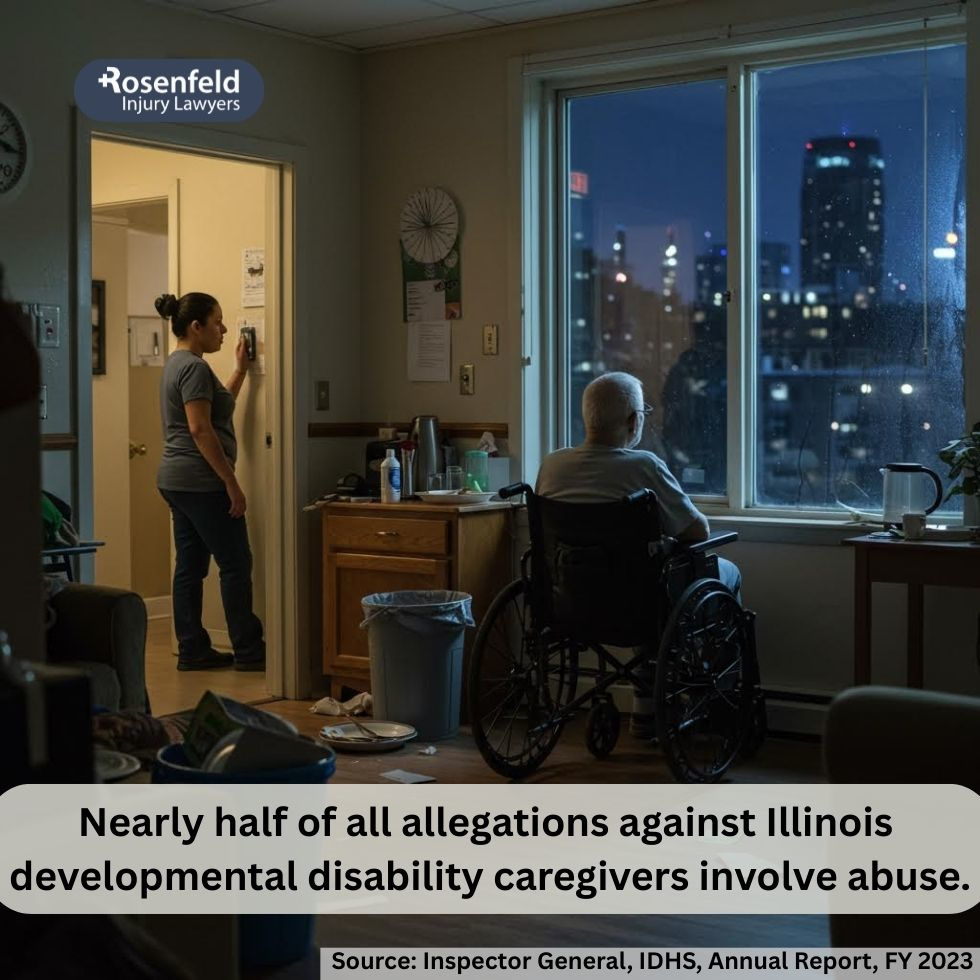
A Community Integrated Living Arrangement (CILA) is a state-licensed residential program designed to support individuals with developmental disabilities. These programs focus on helping CILA residents develop independent living skills while receiving daily care and supervision in smaller, home-based environments.
CILA group homes operate under oversight from the Illinois Department of Human Services (IDHS) and are found throughout the state, including Cook County. These settings are often less institutional and help foster community inclusion.
Types of CILA group home facilities include:
Some examples of Chicago-area CILA facilities include:
Unfortunately, CILA abuse can occur in any of these environments. Individuals may face emotional mistreatment, physical harm, or neglect. Residents with developmental disabilities live in community integrated living arrangements and may struggle to communicate effectively.
Loved ones, other residents, and care staff must remain vigilant. Understanding the signs of CILA abuse is vital to protecting residents’ well-being and reporting concerns to the appropriate authorities, including the state’s Department of Human Services.
Physical mistreatment in CILA homes is more common than many realize. In 2023 alone, the Illinois Office of Inspector General (OIG) received nearly 2,000 reports of abuse and neglect involving CILA homes.
Examples of CILA abuse include:
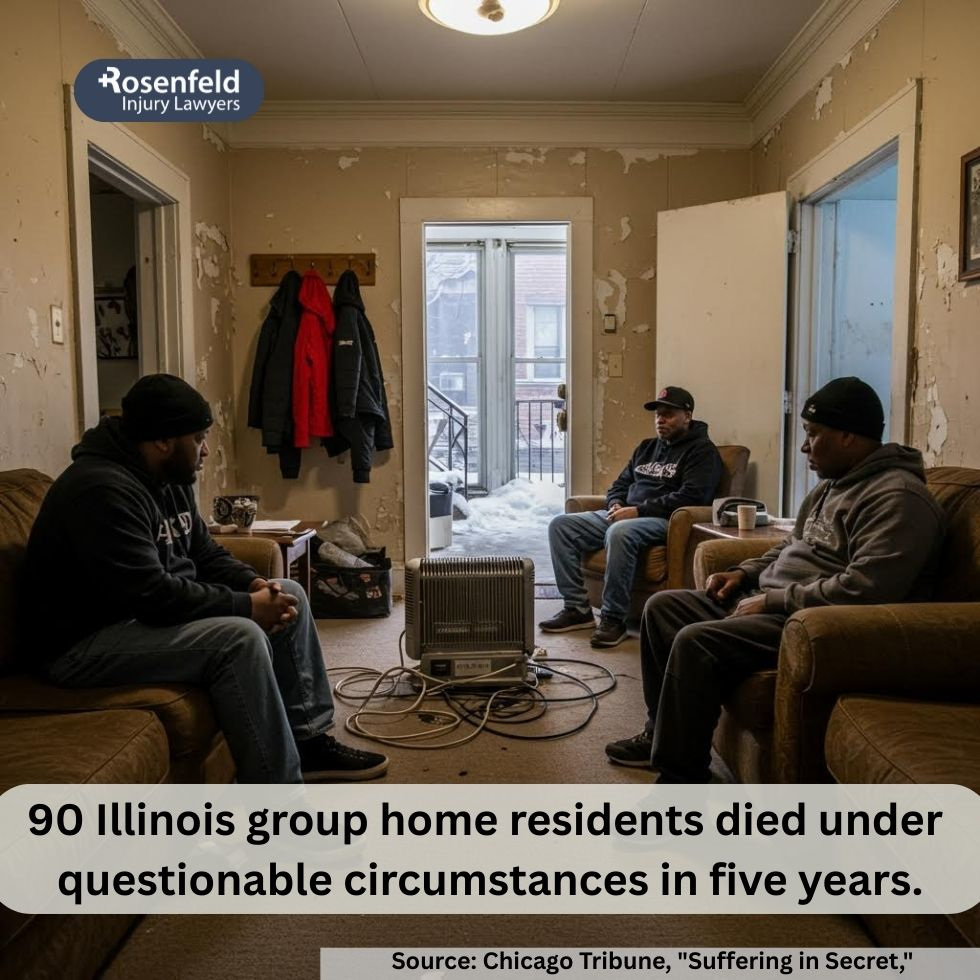
Emotional abuse is another serious issue in CILA settings. Caregivers may intimidate, isolate, or belittle residents, creating long-term psychological harm. In some cases, emotional manipulation is used to facilitate financial exploitation.
This can include:
Mysterious injuries are a common red flag in CILA abuse cases, especially when paired with outdated or inconsistent health records. These gaps in documentation may indicate serious lapses in oversight or ongoing neglect. When a resident remains immobile or unmonitored for long periods, a Chicago Bed Sore Lawyer can help prove that resulting pressure ulcers were a direct consequence of this negligence, while a Chicago Nursing Home Sepsis Lawyer may be required to hold the provider liable if those untreated wounds progress into a life-threatening systemic infection.
Warning signs to look for include:
Other warning signs, like poor hygiene, unexplained financial activity, or signs of mental anguish, may point to deeper issues affecting CILA residents. These concerns could reflect financial exploitation, medical neglect, or broader patterns of CILA abuse. In some tragic cases, failures in care have even resulted in wrongful death.
Since many individuals with developmental disabilities live with limited communication abilities, it’s critical to take these indicators seriously. A CILA abuse lawyer can help assess your concerns and take action to protect residents and hold negligent CILA group home facilities liable.
Abuse in community-integrated living arrangements is a violation of basic rights. If you suspect abuse, contact the Department of Human Services or the Office of Inspector General immediately. These agencies are responsible for overseeing CILA homes in Illinois.
A CILA abuse lawyer can help you navigate this process and seek legal action against negligent staff or administrators. Families and residents have the right to pursue legal action against CILA facilities and protect other residents.
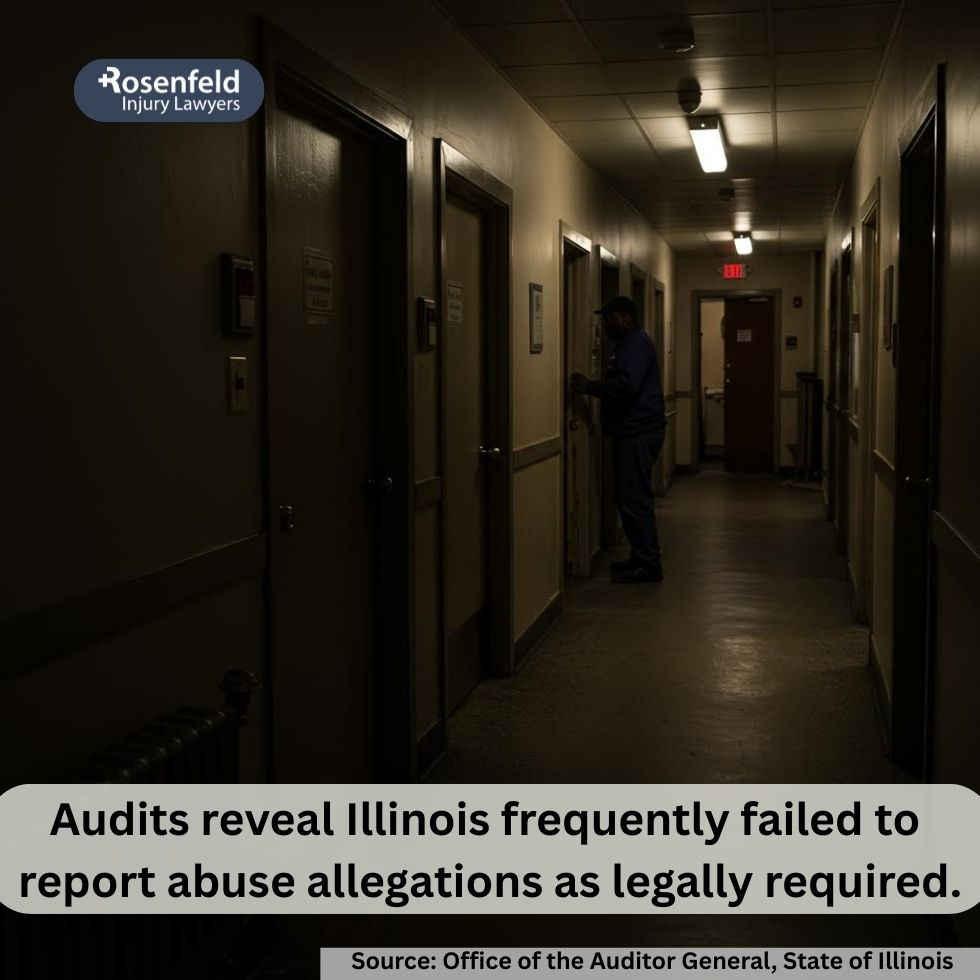
When CILA facilities fail in their duties, survivors and families have legal rights. Illinois law requires professionals to report any suspected abuse. That includes healthcare staff, mental health workers, social service professionals, and legal guardians. Our advocacy extends to specialized forms of neglect; we provide the expertise of a Chicago Nursing Home Chemical Restraints Lawyer when sedatives are misused for staff convenience, and a Chicago Nursing Home Choking Lawyer if a resident’s dietary and supervision needs are ignored during meals.
Even if state investigations don’t confirm CILA abuse, you can still pursue civil legal action. A lawsuit can lead to compensation for medical costs, mental distress, and wrongful death.
Reports must be made to the Inspector General for the Illinois Department of Human Services. If there’s immediate danger, call 911. Otherwise, you can contact the OIG or Adult Protective Services. Failing to report is a Class A misdemeanor in Illinois.
The OIG’s Abuse and Neglect Hotline is 1-800-368-1463. Required reporters must call the OIG within four hours of discovering the CILA abuse. If they make a report in good faith, mandatory reporters are protected by confidentiality.
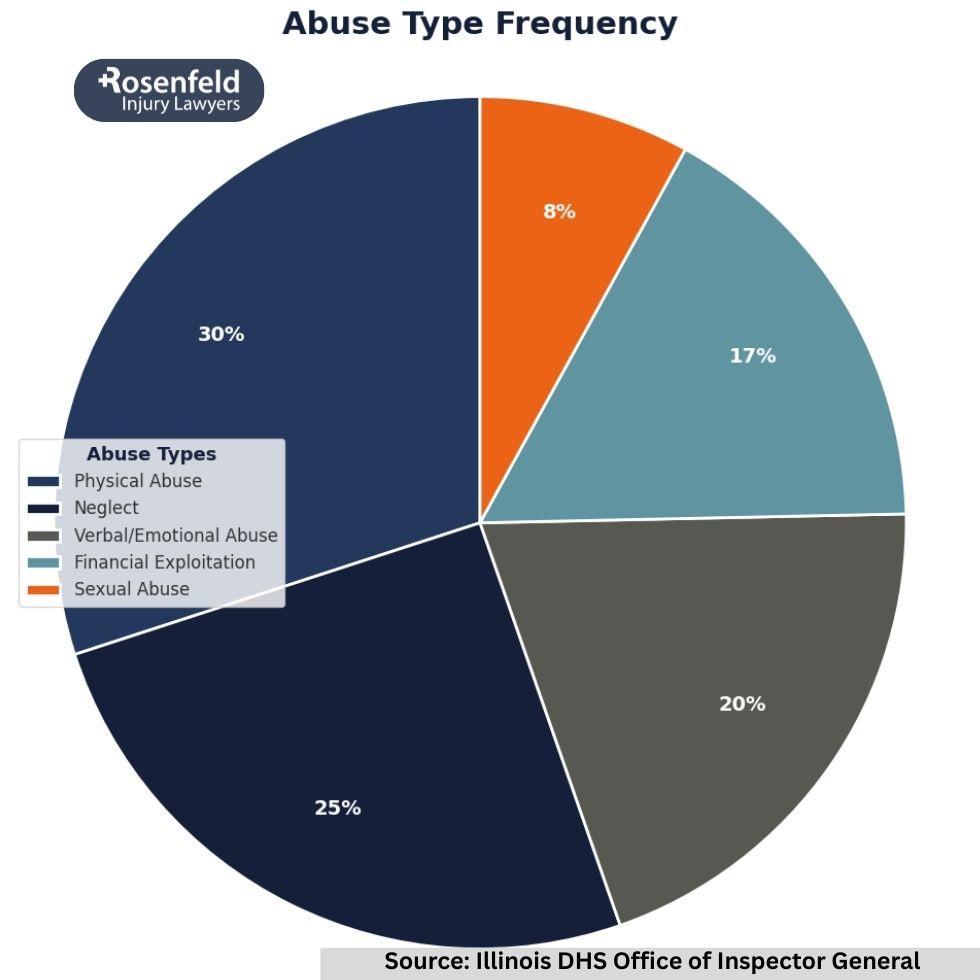
A civil claim may be filed against CILA group home facilities when residents are harmed because of mistreatment. These cases often involve poor care practices, lack of supervision, or unsafe living conditions. You don’t need a criminal conviction to pursue compensation.
Damages may include:
Under 735 ILCS 5/13-202, you typically have two years from the date of injury or discovery to file a lawsuit in Illinois.
Multiple parties may be liable in these cases:
If your loved one has experienced harm in a CILA group home, legal action can help protect others with developmental disabilities who live in these settings.
While we can protect you with our legal knowledge, some professionals and organizations can help you heal, recover, and move forward. They are:
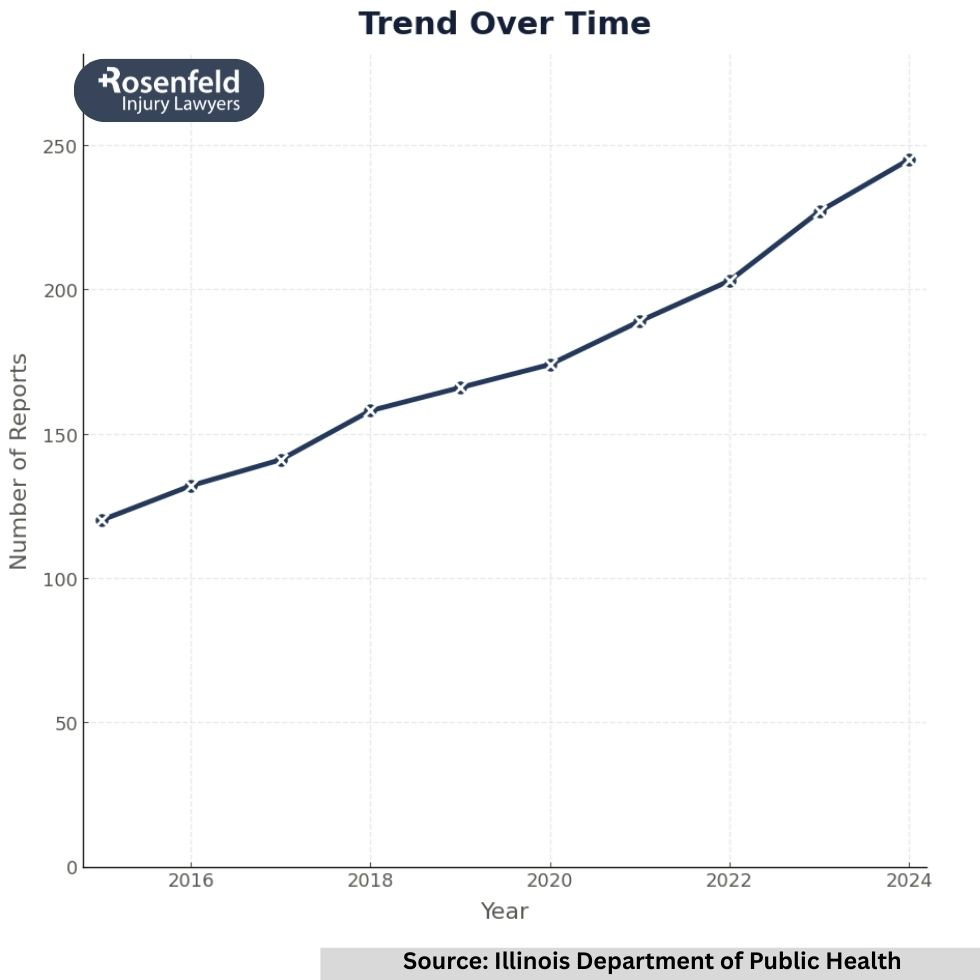
When mistreatment occurs in a CILA group home, multiple parties may be legally responsible. Anyone with a duty of care to residents—whether direct caregivers or administrative bodies—can face consequences for failing to protect those in their care.
Those who may be liable for CILA abuse include:
Bringing a case against each party is essential to improving conditions and protecting residents across Illinois’ network of community-integrated living arrangement facilities.

You don’t have to face this alone. Our skilled CILA abuse lawyers offer a free consultation to review your case. We’ll help you understand your options, gather medical reports, and prepare strong legal claims, including the use of electronic medical records and facility documentation. Our firm is dedicated to seeking justice across every type of victimization, serving as a Chicago Nursing Home Broken Bone Lawyer for fracture cases, a Chicago Nursing Home Infections Lawyer for hygiene-related illnesses, and a Chicago Nursing Home Sexual Abuse Lawyer to protect residents from intentional physical harm.
Rosenfeld Injury Lawyers works on a contingency fee basis. That means no payment unless we recover compensation on your behalf. If you seek legal action to hold the CILA organization accountable, we’re here to help.
Contact us at (888) 424-5757 or through our online form to discuss your legal options with a skilled nursing home abuse lawyer in Chicago.
All content undergoes thorough legal review by experienced attorneys, including Jonathan Rosenfeld. With 25 years of experience in personal injury law and over 100 years of combined legal expertise within our team, we ensure that every article is legally accurate, compliant, and reflects current legal standards.